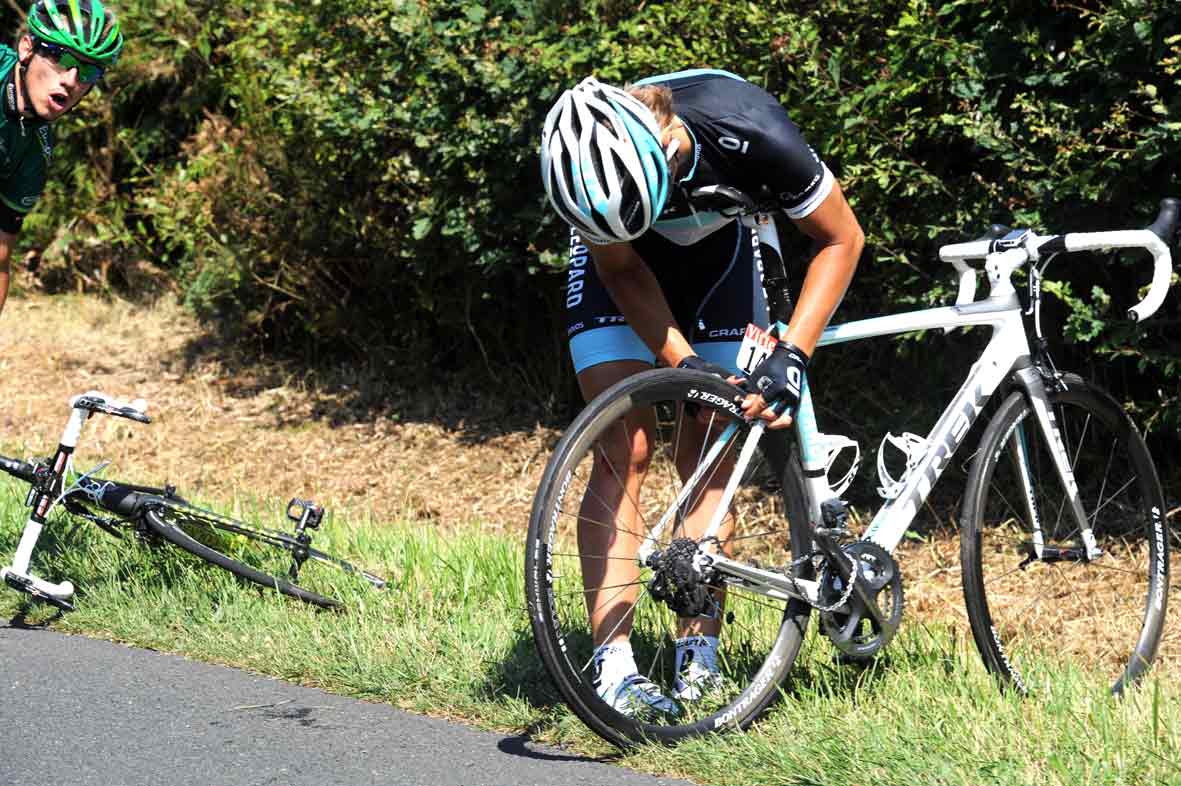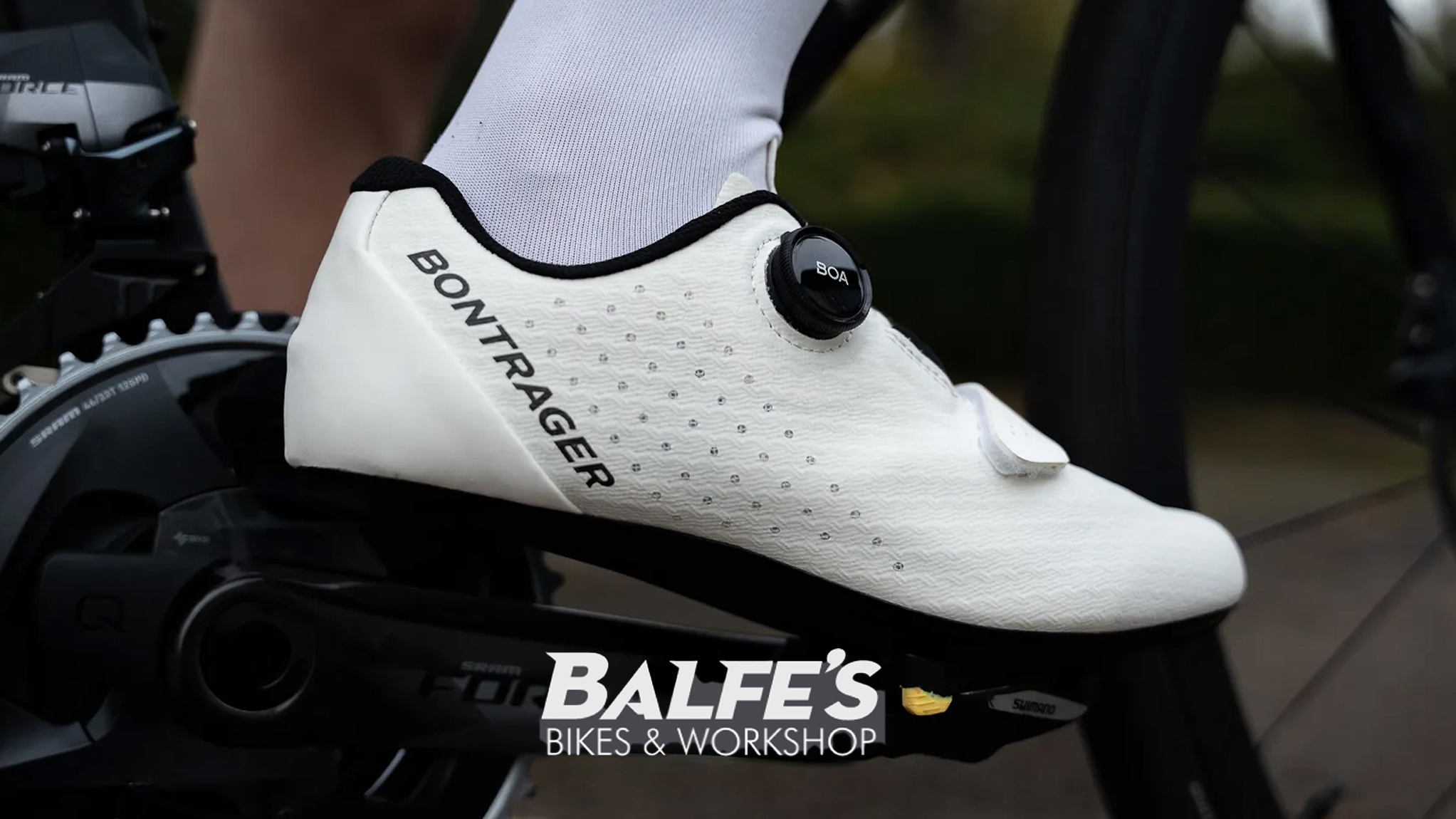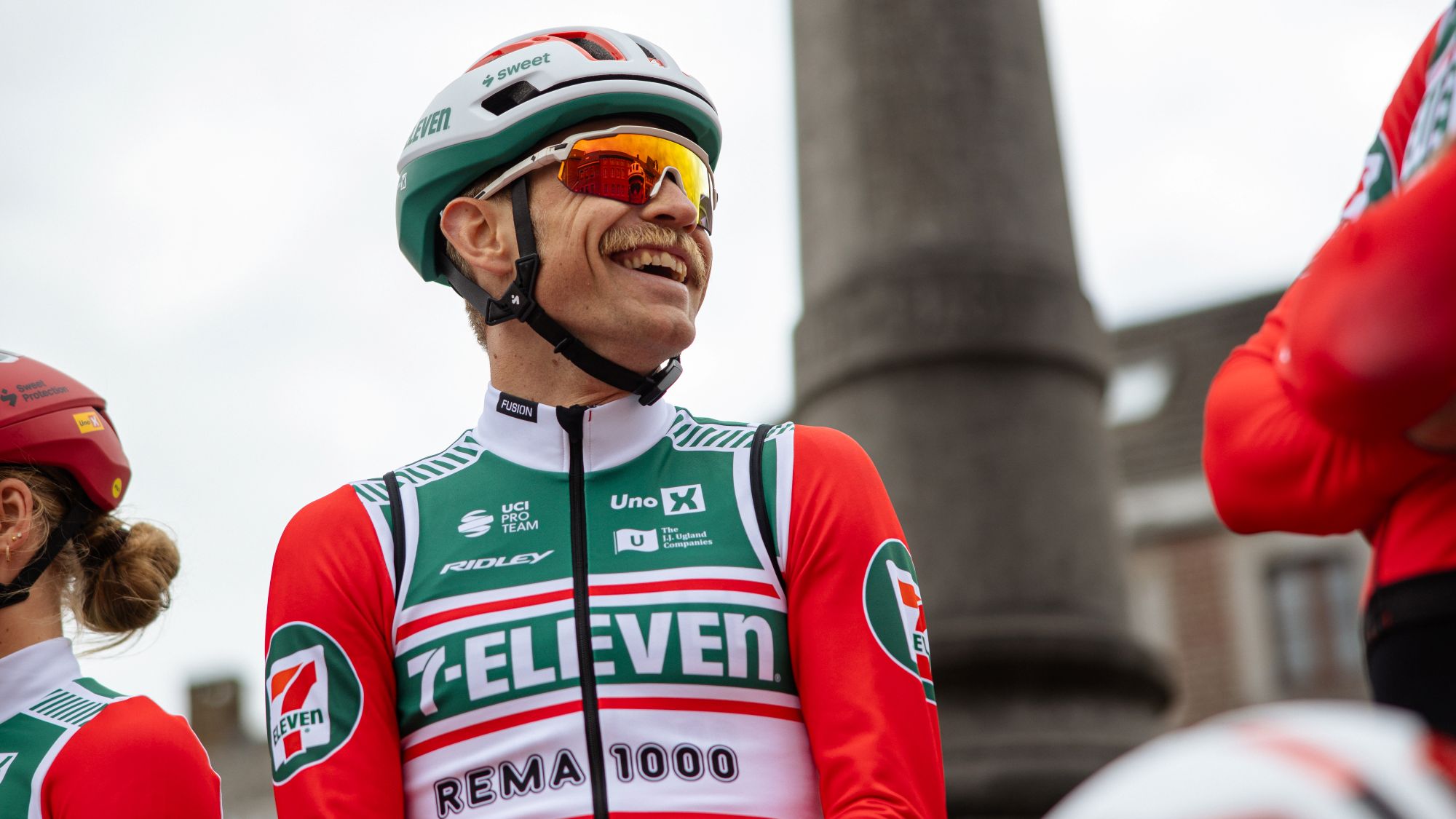Grand départ: Too many spills and not enough thrills
The opening day of the Tour was eagerly anticipated. Unfortunately, a hectic run-in to Les Herbiers left many riders counting the cost.
Words by Lionel Birnie in Les Herbiers
Saturday July 2, 2011

It had been a soporific sort of stage. The equivalent of a lazy day's Test cricket that induces a pleasant afternoon's slumber. It wasn't the grandest of departs and, for much of the time, it felt like one of those transitional stages you get in the second week, albeit one with an undercurrent of tension caused by the fact that everyone started equal and could dream of getting lucky.
That was until the final ten kilometres, which provided plenty of incident, although it's hard to avoid the conclusion that the race could do without this kind of faux drama. We want excitement, of course, but the crashes and the subsequent havoc it played with the results sheet were too messy.
Suddenly you yearned for the reliable drama of a prologue time trial. Yes, they are formulaic and it would probably have provided Fabian Cancellara with another spell in yellow, but there is at least a sense of occasion on prologue day.
The interest ratchets up over the course of the day and although there are winners and losers, it's very rare anyone concedes a meaningful amount of time.
Get The Leadout Newsletter
The latest race content, interviews, features, reviews and expert buying guides, direct to your inbox!
Crossing the Passage du Gois did at least give the start a spectacular start. The pictures were inspiring, as the riders rolled across the mud flats exposed by the low tide and the crowds impressive but once Jéremy Roy, Lieuwe Westra and Perrig Quemeneur had escaped it was as if the race slipped into a state of suspended animation.
Even the first of the so-called 'super' intermediate sprints did little to wake us from our doze. The sprint for fourth place behind the breakaway riders was a curious affair. It was a sort of vanilla version of a proper bunch sprint. No one seemed to be giving it their fullest attention and it made you appreciate just how fast they go when they're giving it everything. Perhaps later in the race, when the competition begins to take shape, we'll see some serious contests but for the green jersey to be overly influenced by too many phoney wars like today's would be a shame.
As an advert for the Vendée region, it was a superb day. The causeway linking the Ille de Noirmoutier with the mainland looked amazing, even if the race was still neutralised. The French television director then spent the afternoon showing us beautiful golden fields, stunning chateaux, farm animals, fans and adverts for the Vendée laid out on the grass. There was the occasional look at the cycling too but, to be honest, nothing was happening.
How we longed for some drama. But then, when something did happen, it felt like we should have been more careful what we wished for.
The prologue does have a function. It sorts the peloton into some sort of order. It calms the nerves a bit. The pre-race tension is lessened by a six-kilometre blast the day before the big bunch tackles its first stage. Today everyone started tied on time and everyone felt they had a chance.
The first crash happened with about nine or so kilometres to go on a straight stretch of road. The bunch, all battling for position, was spread the full width of the road. An Astana rider hit a spectator in a yellow T-shirt, who was looking up the road, away from the oncoming bunch, and standing far too close to the riders.
Down they went and before we knew it, the cameras were focusing on Alberto Contador, who had again found his positional sense wanting.
Another crash, this time inside the final three kilometres, made things even more confusing. Several riders, including Bradley Wiggins, Andy Schleck, Janez Brajkovic and Robert Gesink were delayed by that crash.
However, because of the rule that protects riders who crash or are held up by a crash in the final three kilometres, they knew they would be awarded the same time as the group they were with at the time of the incident.
And so we had a situation that meant that as groups of riders crossed the line some were losing time by the fistful, others were coasting in wrapped in their security blanket.
The opening stage throws up two points that all race organisers need to consider.
Firstly, the way Europe's roads have changed in the past decade means that fields of almost 200 riders are becoming untenable. The bunch is simply too big.
There were nine roundabouts in the final six kilometres. How many times did we see riders stream both sides and almost come to grief when they came back together? How many times do we see riders hopping curbs or dodging central reservations at the very last moment?
And the rule that means riders cannot lose time if they crash in the final three kilometres is well intentioned. It was extended from one kilometre to three a few years ago to protect the overall contenders in the increasingly hectic sprint finishes.
But one of ASO's arguments against having time bonuses is that they want the leader to always be the rider who has covered the course in the quickest time. It wasn't a case of riders who avoided the crashes gaining an advantage. Instead the crucial matter was where you crashed.
Tonight several riders with overall ambitions will count the cost. Alberto Contador is 1-20 down. Garmin paid a particularly high price, with Tom Danielson, Ryder Hesjedal, and Christian Vande Velde all at 1-55, as is Astana's top ten hope, Roman Kreuziger.
Yes, fortune favours the brave. Yes, there are always crashes in the first week and riders always lose out. But for the second year running, it's not been the racing but the falling that has opened the early gaps.
Cycle Sport's Tour Village: All of our Tour coverage.
Follow us on Twitter: www.twitter.com/cyclesportmag

Thank you for reading 20 articles this month* Join now for unlimited access
Enjoy your first month for just £1 / $1 / €1
*Read 5 free articles per month without a subscription

Join now for unlimited access
Try first month for just £1 / $1 / €1
Edward Pickering is a writer and journalist, editor of Pro Cycling and previous deputy editor of Cycle Sport. As well as contributing to Cycling Weekly, he has also written for the likes of the New York Times. His book, The Race Against Time, saw him shortlisted for Best New Writer at the British Sports Book Awards. A self-confessed 'fair weather cyclist', Pickering also enjoys running.
-
 Gear up for your best summer of riding – Balfe's Bikes has up to 54% off Bontrager shoes, helmets, lights and much more
Gear up for your best summer of riding – Balfe's Bikes has up to 54% off Bontrager shoes, helmets, lights and much moreSupported It's not just Bontrager, Balfe's has a huge selection of discounted kit from the best cycling brands including Trek, Specialized, Giant and Castelli all with big reductions
By Paul Brett
-
 7-Eleven returns to the peloton for one day only at Liège-Bastogne-Liège
7-Eleven returns to the peloton for one day only at Liège-Bastogne-LiègeUno-X Mobility to rebrand as 7-Eleven for Sunday's Monument to pay tribute to iconic American team from the 1980s
By Tom Thewlis